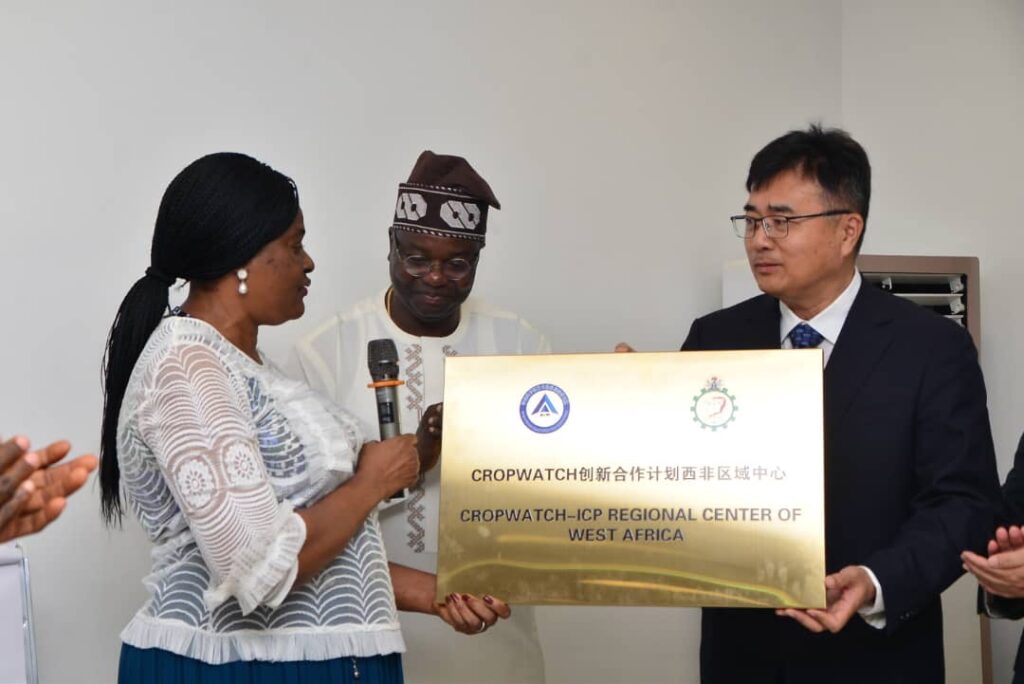Read in
Key Highlight
- Nigeria as the first Center for CropWatch in West Africa.
According to the news released by the National Space Research and Development Agency (NASRDA), Nigeria has been inaugurated as the first Center for CropWatch in the West African sub-region. Chief Uche Nnaji, the Minister of the Federal Ministry of Innovation Science and Technology (FMIST), represented by Mrs Esuabana Nko-Asanye, the Permanent Secretary of FMIST, unveiled the plaque establishing the centre.
This announcement was made during the four-day Regional Workshop for West Africa on the CropWatch initiative, themed “Advancing Satellite-Based Crop Monitoring to Increase Resilience in the Face of Global Food Insecurity.”
The Minister, represented by Mrs Esuabana Nko-Asanye, emphasised the importance of leveraging satellite technology, including Earth observation satellites, to enhance food security and agricultural productivity for the nation’s sustainable development. He noted that the workshop aligns with Sustainable Development Goal (SDG) 2 and the national mandate to ensure food security and eradicate poverty and hunger. In addition, he stated that the CropWatch programme provides a platform to address climate change challenges affecting the agricultural sector and food sustainability.

In his address, Dr Matthew Adepoju, Director General (DG) of NASRDA, affirmed the agency’s commitment to employing cutting-edge technologies to transform agriculture and ensure food security. Dr Adepoju, while expressing gratitude to the team of Researchers at the Aerospace Information Research Institute (AIR)/Chinese Academy of Sciences (CAS), emphasised the crucial role of Space Science, Technology, and Innovation (STI) in enhancing agriculture for the socioeconomic development of the country. He noted that integrating space technology and innovation has significantly impacted agriculture, aligning with NASRDA’s mandate to use space-based technology for sustainable agriculture.
This effort aims to customise the CropWatch System for Nigeria to achieve Sustainable Development Goal (SDG) 2, which focuses on ending hunger, achieving food security, and promoting sustainable agriculture. The DG also reassured the team of NASRDA’s unwavering support, committing to providing competent security and personnel to manage the project as part of the agency’s strong contribution to the collaboration.

Ms Haihua Gong, Director of the Division of Asian and African Affairs at the Bureau of International Cooperation, Chinese Academy of Sciences (CAS), expressed her gratitude for her warm reception. She noted that this hospitality reflects the agency’s genuine desire to foster effective collaboration with the international community. Ms Gong highlighted the timeliness of the workshop’s theme, emphasising that the mission of CAS as an international science organisation is to support the United Nations’ model by promoting and advancing Science, Technology, and Innovation to achieve the zero hunger goal.



